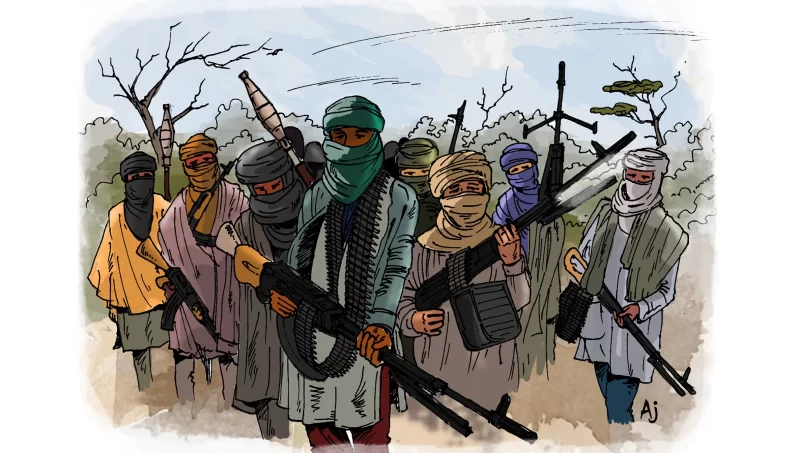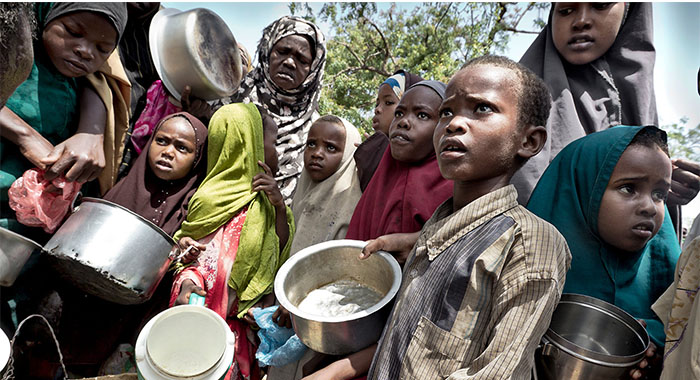Education
Nigeria’s Higher Education Dilemma: Addressing Certificate Legitimacy Without Blanket Condemnation -By John Egbeazien Oshodi
Economic and Social Implications of Blanket Invalidation Beyond the direct impact on students and graduates, a blanket invalidation of degrees can harm Nigeria’s economy and social cohesion. Many affected individuals occupy key positions in various industries, including healthcare, engineering, and education. Their dismissal or disqualification from employment could result in workforce shortages and economic disruptions. Furthermore, such policies may discourage prospective students from pursuing legitimate international education opportunities, limiting Nigeria’s global academic competitiveness.

The recent controversy surrounding degrees obtained from universities in Togo and Benin Republic has ignited serious concerns regarding the credibility of these institutions. However, it is crucial that Nigeria’s response is measured and evidence-based, rather than a blanket condemnation that indiscriminately affects thousands of students, alumni, and faculty members. The House Committee must undertake a balanced evaluation, ensuring that legitimate institutions are distinguished from diploma mills. A fair and transparent approach is necessary to uphold educational standards while protecting the rights of Nigerians who pursued their education in good faith. The following key areas require in-depth scrutiny:
Institutional Accreditation: Distinguishing Genuine Universities from Diploma Mills The accreditation status of universities in Togo and Benin Republic must be carefully assessed to separate legitimate institutions from those engaging in fraudulent practices. Official accreditation by national authorities must be verified, and Nigeria’s stance should reflect these established recognitions. While some universities may indeed be unaccredited, it is inaccurate to claim that all institutions in these countries lack proper licensing. According to official records, Benin Republic has over ninety-five accredited private universities, while Togo has seventy-nine accredited institutions. A blanket invalidation of all degrees unfairly penalizes those who attended reputable universities.
Quality Assurance: Implementing Rigorous, Targeted Reviews Quality assurance should be conducted through an independent, transparent process rather than through sweeping generalizations. Accredited universities in Benin Republic and Togo should be periodically assessed based on curriculum standards, faculty qualifications, and institutional credibility. The House Committee should advocate for a review process that recognizes schools with demonstrated academic integrity while exposing substandard institutions that operate without oversight. This will prevent unjust stigmatization of graduates from reputable universities.
Faculty Qualifications: Ensuring Competency Without Disregarding Legitimate Institutions One of the most critical aspects of higher education quality is faculty qualification. Universities must employ lecturers with terminal degrees from recognized institutions. However, rather than dismissing all universities in these neighboring countries as unqualified, the Nigerian government should establish direct collaboration with Benin and Togo to ensure continuous evaluation of faculty credentials. This will allow for a nuanced understanding of which institutions meet acceptable academic standards and which require intervention.
Student Selectivity: Reforming Admission Practices Instead of Wholesale Rejection It is crucial to ensure that admission processes at these institutions are merit-based and competitive. Reports of certificate racketeering must be taken seriously, but this does not mean that all universities in Benin and Togo engage in such practices. The Nigerian government should demand transparency in student enrollment, including verifiable attendance records and examination processes. Universities found guilty of selling degrees should face consequences, but those maintaining rigorous academic standards should not be unfairly blacklisted.
Resources and Infrastructure: Addressing Concerns Through Bilateral Engagements The quality of educational resources, infrastructure, and technological facilities in these universities must be reviewed. Instead of outright rejection, Nigeria should explore bilateral engagements with the governments of Benin and Togo to facilitate improvements where necessary. Many Nigerian students opt for these institutions due to affordability and accessibility, and therefore, rather than stigmatizing them, there should be investment in partnerships that improve learning conditions.
Graduate Outcomes: Protecting the Futures of Thousands of Nigerians The potential invalidation of over 22,700 degrees poses a significant risk to thousands of Nigerians who studied in these countries. Many graduates are currently employed in various sectors, and the abrupt declaration of their certificates as fake threatens their livelihoods. The House Committee must consider the human impact of this decision and ensure that legitimate graduates are not unfairly punished for the actions of a few fraudulent institutions.
Internationalization: Recognizing the Global Validity of These Degrees Despite Nigeria’s ban, degrees from accredited universities in Togo and Benin Republic remain valid worldwide. Nigerian graduates from these institutions continue to be accepted for further studies and employment opportunities in other countries. The government must avoid isolating itself from global education networks by adopting a more refined and evidence-driven approach in its decision-making process.
Transparency and Accountability: Demanding Public Release of Investigation Reports The decision to invalidate these certificates was largely based on the findings of an inter-ministerial committee set up by the Federal Ministry of Education. However, the findings of this investigation were never made public, nor were copies provided to the governments of Benin and Togo. The House Committee must demand transparency and a formal release of the report to ensure that decisions affecting thousands of Nigerians are based on verified data rather than speculation.
How Other Countries Handle Such Issues ObjectivelyOther nations facing similar concerns about foreign university degrees have taken more balanced and structured approaches. Countries such as the United States, Canada, and the United Kingdom rely on independent accreditation and credential evaluation agencies like WES (World Education Services) and NARIC to verify the legitimacy of foreign degrees. Instead of issuing blanket bans, these countries conduct comprehensive reviews of institutions and create publicly accessible databases listing recognized and non-recognized universities.
In Germany, for example, the Central Office for Foreign Education (ZAB) evaluates the accreditation status of foreign universities on a case-by-case basis and provides guidance on the recognition of degrees. Similarly, South Africa has a system where degrees from foreign institutions are verified through SAQA (South African Qualifications Authority) before they are accepted for employment or further education.
Nigeria should adopt a similar model by setting up an independent body responsible for evaluating foreign degrees based on accreditation status and educational quality. This would ensure that graduates of reputable institutions are not unjustly penalized while preventing degree fraud. Additionally, Nigeria should initiate cooperation agreements with regional educational bodies to strengthen cross-border academic integrity.
Economic and Social Implications of Blanket Invalidation Beyond the direct impact on students and graduates, a blanket invalidation of degrees can harm Nigeria’s economy and social cohesion. Many affected individuals occupy key positions in various industries, including healthcare, engineering, and education. Their dismissal or disqualification from employment could result in workforce shortages and economic disruptions. Furthermore, such policies may discourage prospective students from pursuing legitimate international education opportunities, limiting Nigeria’s global academic competitiveness.
Conclusion: A Call for Fairness and Due Process While Nigeria must take a firm stance against certificate racketeering, it must also ensure that legitimate institutions and their graduates are not unjustly penalized. The government should adopt a more structured and evidence-based approach that differentiates fraudulent institutions from accredited ones. Immediate reversal of the blanket invalidation should be considered, along with reinstatement of government workers who were dismissed based on the Minister’s unilateral declaration. By implementing a balanced policy, Nigeria can uphold educational integrity while safeguarding the futures of thousands of its citizens and ensuring economic stability.
Oshodi Open Door, also known as Oshodi Open Door Public Training (OOPDT, pronounced opidt), is a public awareness initiative promoting transparency, accountability, and integrity in Africa through educational articles and resources at jos5930458@aol.com, and offers specialized Timely Response Solutions (TRS) training at minimal or no cost.
John Egbeazien Oshodi is an American psychologist, educator, and author. Born in Uromi, Edo State, Nigeria, he is the son of a 37-year veteran of the Nigeria Police Force. Professor Oshodi is an expert in cross-cultural psychology, forensic/clinical psychology, police and prison science, and social justice.
He has made significant contributions to forensic psychology, introducing it to Nigeria in 2011 through the National Universities Commission (NUC) and Nasarawa State University. Professor Oshodi has taught at several institutions, including Florida Memorial University, Florida International University, and Nova Southeastern University.
Currently, he serves as a government consultant for forensic-clinical psychological services in the USA and practices as a clinical and forensic psychologist. He also holds virtual faculty roles at Walden University, Wedios University and other institutions. Professor Oshodi has authored numerous publications and founded the Psychoafricalysis theory in psychology.























